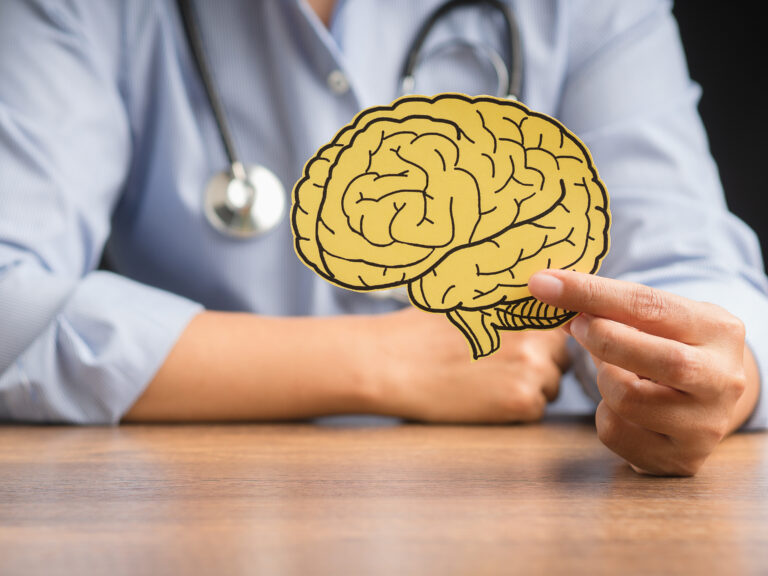What You Need to Know About Alzheimer’s Disease
What is Alzheimer’s Disease?
Alzheimer’s disease is a common type of dementia that affects many people, especially older adults. It is a disease that worsens with time and causes problems with memory, thinking, and talking. This can make it hard for people to do their daily activities and have conversations with others.
In 2023, about 6.7 million Americans were living with Alzheimer’s disease. About 1 in 9 people aged 65 and older have Alzheimer’s dementia. It is estimated that by 2060, around 14 million people will be diagnosed with Alzheimer’s Disease1.
What Causes Alzheimer’s Disease?
Researchers are still trying to understand what causes Alzheimer’s disease. It is believed that there can be many causes that affect each person uniquely.
One known risk factor for Alzheimer’s disease is getting older. Family history and genetics may also play a role, but don’t determine if you’ll definitely get the disease. Leading a healthy lifestyle can help reduce the risk of Alzheimer’s disease. This can include eating healthy meals, getting enough exercise, and limiting smoking and alcohol consumption.
However, changes in the brain can start many years before you first start seeing symptoms. Researchers are currently looking into how education, diet, and your environment can help reduce the risk of Alzheimer’s disease.
What are the Warning Signs of Alzheimer’s Disease?
Memory problems are often the first sign of Alzheimer’s disease. It’s important to know that memory loss that disrupts your daily life is NOT a typical part of aging. Usually, family and friends are the first to see changes in memory, behavior, and abilities.
Here are eight early signs of possible Alzheimer’s disease:
- Memory Loss: Forgetting events or people, repeating yourself, relying on multiple memory aids to help you remember
- Challenges in Self-care, Planning, Problem Solving: Having new trouble completing routines or resolving problems that arise (hygiene, paying bills, maintaining the house, cooking recipes)
- Confusion With Time & Place: Losing track of dates and appointments, getting lost while driving
- Trouble With Vision or Understanding Space: Having trouble with balance, tripping and falling frequently, dropping things often.
- Difficulty With Language: Having trouble following a conversation, mixing up similar words, constantly having difficulty remembering the right word or feeling like the word you are looking for is on the tip of your tongue
- Misplacing Items: Leaving things in unusual places, like leaving your wallet in the fridge or simply losing things more frequently.
- Changes in Mood and Personality: Getting easily upset with mild inconveniences, feeling more paranoid or fearful.
- Changes in Judgement: Engaging in risky behavior, difficulty managing money well, falling for scams more often.
If you or a loved one have one or more of these warning signs, it may be time to see a doctor for further testing. Early diagnosis gives patients a chance to seek treatment to delay the progression of the disease and plan for the future. It provides an opportunity to consider financial planning, develop advance directives, and participate in clinical trials.
What is the Treatment for Alzheimer’s Disease?
There is currently no cure for Alzheimer’s disease. However, treatment can help improve the quality of life for those diagnosed with Alzheimer’s disease and their caregivers. Treatment is usually focused on managing symptoms and slowing down the progression of the disease.
Many people with Alzheimer’s disease are cared for at home by their family members. While caregiving can be rewarding, it can also be challenging and overwhelming at times. As the disease progresses, individuals with Alzheimer’s often require more intensive care. It’s important to take care of yourself as a caregiver and seek support when needed. You can find more information about caring for yourself and access helpful resources for caregivers on our Caregiving and Support Resource Page.
Finding New Potential Treatments for Alzheimer’s Disease
Take action against Alzheimer’s disease today!
If you or someone you know is suffering from Alzheimer’s disease, you may qualify for paid clinical research studies.
For more information, check out our Blog section.
References
- 2023 Alzheimer’s Disease Facts and Figures. Alzheimer’s Association, 2023, www.alz.org/media/Documents/alzheimers-facts-and-figures.pdf.
- “What Is Alzheimer’s Disease?” Centers for Disease Control and Prevention, 26 Oct. 2020, www.cdc.gov/aging/aginginfo/alzheimers.htm#anchor_1489431577.



